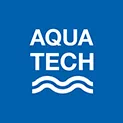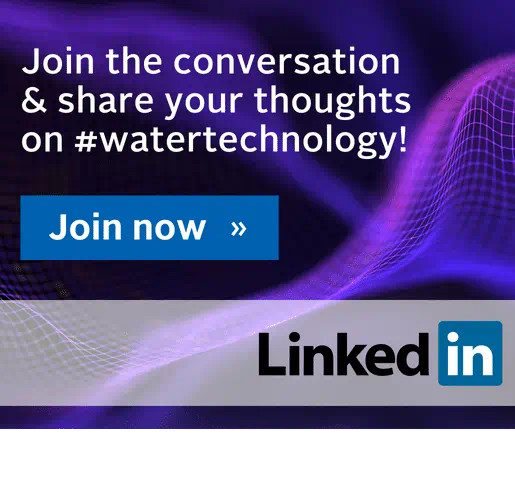Stories benefit everything connected to water
Storytelling done right can help the water industry in changing times of scarcity, drought and contamination events, such as PFAS and lead, writes Rune Kier.
The water industry has it all. As well as being a vital service for humanity, we work at the intersection of the natural environment and artificial intelligence at a time when climate and sustainability are on everyone's mind. Yet something is lacking: stories.
Stories can stick in the human mind. And that has several benefits for citizen outreach, public affairs and sector recruitment. It is also one of the most established ways of building credibility and trust in times of scarce or polluted water, such as the Flint water crisis concerning lead, or polyfluoroalkyl substances (PFAS) contamination currently making the headlines.
What defines a memorable and relatable story is notoriously hard to pin down, but you know it when you hear it. And we have all heard it. When South Africa announced their countdown to Day Zero, it echoed across the globe; from newspaper headlines to boardroom brawls, from world leader agendas to dinner table discussions. Suddenly, my 10-year-old daughter understood why her father worked at a water utility, and I was invited to talk about water in her school classroom.
We also hear it when talks of contamination arise. The Flint water crisis is relatable because we all fear it might happen to us. We start to think about what it will mean to lack access to clean water every day. This is a story that needs to be told. And so, does the story about how utilities and water technology companies work tirelessly to the benefit of everybody. Or better yet, how we all can help keep water safe and sufficient in our community?
What Day Zero did differently
Day Zero created a story framework where we had to fill in the gaps. Doing it ourselves created engagement and ownership. Day Zero made water scarce and offered everybody the chance to become the hero who saved Cape Town by securing enough water for its population. By implication, it created the villain of climate change-induced drought although the villain changed depending on the hero and the solution proposed. The story framework is flexible.
Storytelling done right can help the water industry in changing times. It is a great way to make sense of investment, engaging stakeholders and call to action. It can help people understand the challenges of water scarcity, water quality and – perhaps – rising water prices. But how do you do it? Where do you start? Here is a short practical guide to storytelling in the water tech sector.
Five storytelling tips
1. You are not the hero – they are
Everybody wants to be the hero who saves the day. Nobody wants to be the helper. Arguably the hardest part of good storytelling is making room for someone else to be the hero. Yet with Day Zero, Cape Town asked us to save the day - it did not tell us how South Africa saved the day. And thereby Day Zero engaged us and invited us in. So far, water pollution has been framed largely as an issue of political regulation. Storytelling, if done right, can help to reframe this.
2. Pose a choice - and make it concrete
We always have choices. Things are done in a certain way, but they could be done in others. And much of communication is really about influencing those decisions and changing our course of action. What do you want people to do differently? If you want them to lower water consumption, then ask them to take shorter baths or not to water the lawn. If you want to avoid fatbergs, then tell them not to pour food fat into the sink and flush wipes in the toilet. Make it concrete. Through storytelling, individuals can be engaged to help to lobby politicians to push for regulation, to ensure the use of pesticides are limited and keep track of measurements. Voters have the power to democratically elect governments with more environmentally focused policies, but only if they are engaged.
3. Show what will happen – and what might
Day Zero was a dystopia waiting to happen unless we act to preserve what we have. Thankfully it was avoided but many other cities and parts of the world face 'Day Zero' without it being as widely reported. Another way would be the more positive change that we might experience if we act differently. The key is to describe where we are heading and what road we might have travelled by. There is an engaging story to be told about the difference between having safe and sufficient water – and not. Most people are used to having that water and trust it will remain that way. But what happens when that trust erodes? This is a risk water suppliers cannot afford to take.
4. Focus on the effect - not the technology
"People generally don’t care about drinking water – they care about a drink of water."
People generally don't care about drinking water – they care about a drink of water. Extraction, desalination, treatment, filtering, distribution, leakages and environment doesn't count. What counts is having a drink, boiling a pan of pasta, taking a warm bath or going for a walk by the lake. Focus on that. When pollution happens, what is the effect on the most cherished part of peoples’ everyday lives? Will it mean that they have to buy bottled water – what will it cost and how far will they have to go? Does it affect the taste of food? Does it influence the environment?
5. Put it bluntly - don’t hold back on metaphors
Most people don't speak 'water'. They don't know the challenges faced by the sector, and they don't understand the words we use to describe them. Metaphors are a way to convey the meaning and emotion without the jargon. And metaphors structure our mind around a storyline. Therefore they are well-suited to use as a tagline, slogan or the title of your campaign. Day Zero is phrased as a punchy countdown. It would not have worked had it been phrased as a water scarcity issue, a leakage detection challenge or a campaign to reduce water consumption. Make it punchy to make it work. What will make headlines and spread your issue to the world?

Rune Kier Nielsen
Strategic Communication Associate
Sustainary







